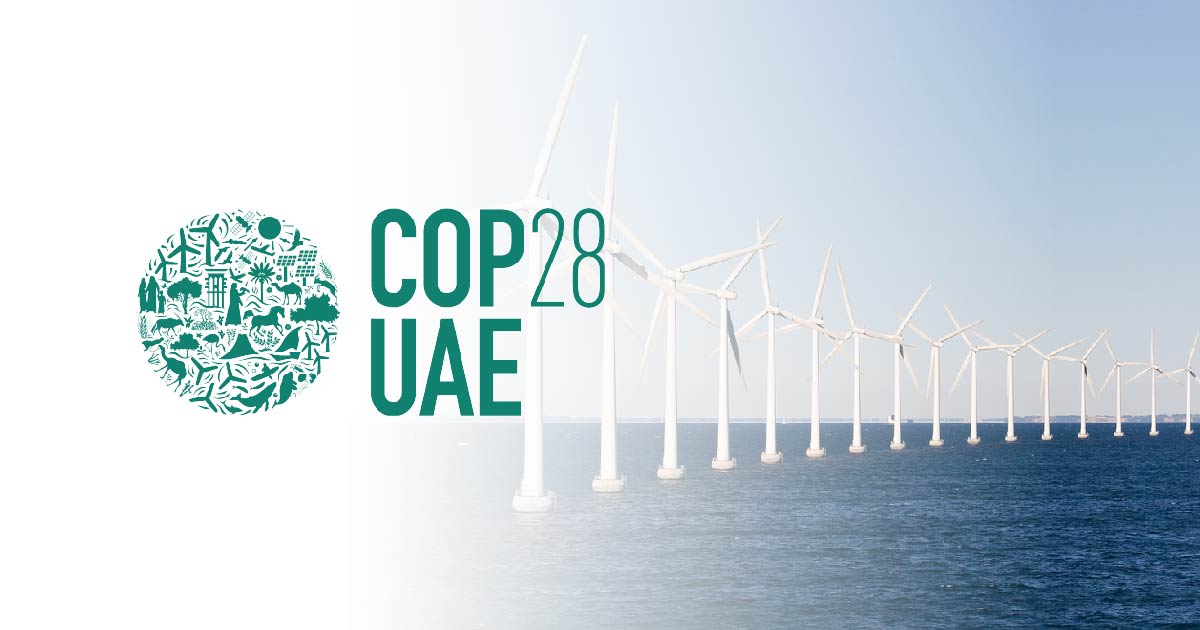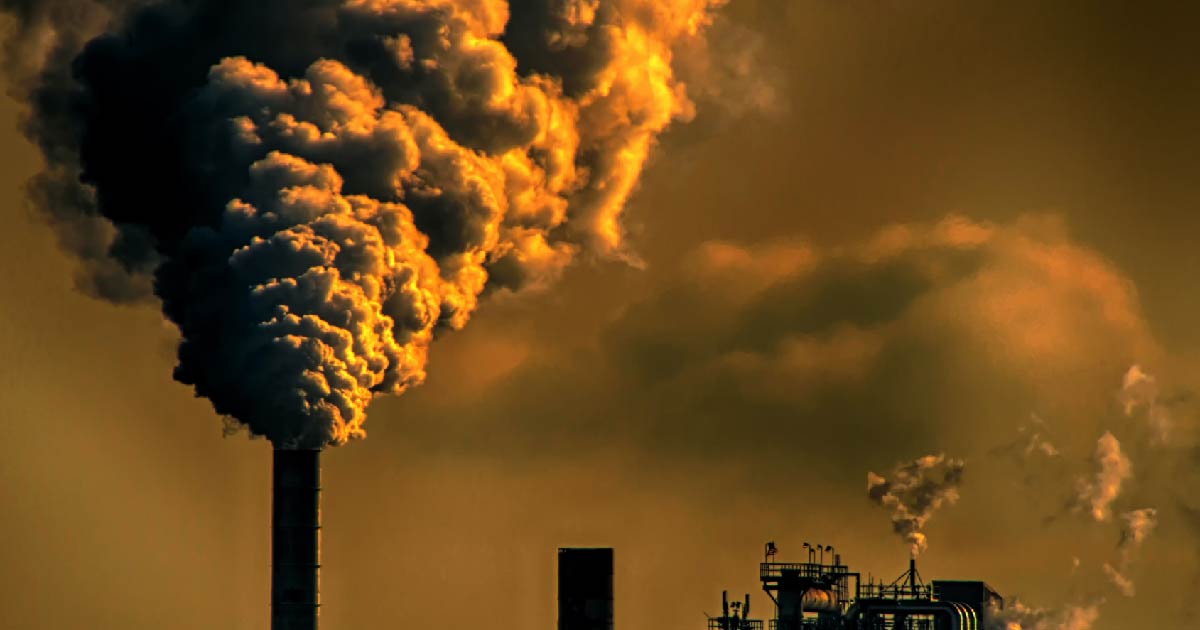COP28 and the Energy Transition


As the 2023 United Nations Climate Change Conference, commonly known as COP28, enters its second week, Nick Terry, SLPE’s Head of WTG Substructures, shares his insights on the global energy transition.
COP28, this year's edition of the annual "Conference of the Parties" aimed at tackling global warming, is being hosted in Dubai by the United Arab Emirates. As an oil-wealthy petrostate, but also as one of the most climate-vulnerable countries in the world, the UAE exemplifies the conflicting priorities and challenges involved with the global energy transition to renewables. This article provides background on the energy transition and explores potential outcomes from this year's COP.
In 2019, around 84% of the energy used to power human activities around the world came from coal, oil, and gas [1]. Energy is extracted from these fossil fuels either directly (such as gas for heating and petrol for cars) or by burning these fuels in a power station to produce electricity. The burning of fossil fuels is responsible for around 75% of global greenhouse gas emissions, and nearly 90% of all carbon dioxide emissions [2].

To have any chance of limiting global warming to a peak of 1.5 degrees, every part of the global economy needs to rapidly decarbonise (reduce the amount of carbon dioxide emitted) [3]. As the biggest contributor to climate change, the energy industry has the greatest responsibility and greatest opportunity to reduce carbon emissions. Decarbonising energy production implies reducing and ultimately ceasing the burning of fossil fuels and switching to more sustainable forms of energy. The gradual process of replacing fossil fuels with renewable or low carbon energy is known as the energy transition.
Fossil fuel consumption has increased significantly over the past half-century, and has roughly doubled since 1980. In recent years, coal use has been falling in many parts of the world; but, oil and gas consumption is still growing [1]. Investment in new oil and gas extraction continues, in defiance of warnings that new fossil fuel developments are not compatible with a 1.5-degree pathway [4]. Although electricity generation from renewables is increasing, this isn't happening quickly enough to match global growth in energy demand. We've not yet reached a point in the energy transition where fossil fuel consumption is starting to reduce.
On the plus side, the International Energy Agency (IEA) now predicts that the usage of coal, oil, and gas will all peak by 2030 (although current policies do not yet lead to a rapid reduction in oil and gas use after this peak) [3]. Annual global investment in clean energy now exceeds investment in fossil fuels, but ongoing investment in oil and gas remains at almost double the level needed if the world is to reach net zero carbon emissions by 2050 [3].
We now have a great deal of experience building wind farms and solar arrays, and costs have reduced hugely over the past decade. In fact, renewables are now the cheapest form of power [5]. So why are we still investing in oil and gas?
One reason is that fossil fuel is pretty miraculous stuff. Energy from the sun has been absorbed by plants and gradually fossilised over hundreds of millions of years, and then concentrated underground just waiting for us to dig it up and burn it. The energy density of fossil fuel is hard to argue with: a single barrel of oil can do about the same amount of work as a person labouring non-stop for 25,000 hours. Starting with coal, fossil fuels have literally powered humanity’s technological development since the industrial revolution. Fossil fuels have produced the world we know, and it's hard to give up something so powerful even when we know it's also so destructive.
Linked to this is inertia. For the majority of people on the planet, our energy and transport systems rely on fossil fuels. Fossil fuels have become embedded to the point where changing energy source requires a revolution in transport, infrastructure, and even economics.
The transition to renewables requires us to electrify as much of our lives as possible. Electric vehicles are gradually gaining a foothold in the market, but (to pick one example) imagine how long it could take for heat pumps to displace gas boilers in homes across the UK, let alone the whole world. Society has become addicted, and kicking the habit is not going to be easy.

Lastly, and perhaps most significantly, the energy transition is being relentlessly obstructed and resisted by those with vested interests. Renewable energy obviously makes more sense than fossil fuel (it’s cheaper, it’s cleaner, it’s available everywhere); that is, unless you are the owner of a coal mine or oil company. Unfortunately, organisations profiting from fossil fuel extraction tend to have a great deal of political influence (until recently, ExxonMobil was the biggest company on the planet). Whole countries – Russia or Saudi Arabia, for example – derive the majority of their wealth and power from fossil fuels. This collection of companies, organisations, and nation-states, loosely referred to as the fossil fuel industry, has single-mindedly used its power to delay the energy transition since the 1970s, and continues to do so today despite the clear global consequences.
COP28 is being hosted by the UAE, a member of the OPEC oil cartel. It is being chaired by Dr. Sultan Al Jaber, the CEO of the UAE’s state oil company, ADNOC. Shortly before the summit, leaked documents showed that the UAE planned to use COP28 climate meetings to promote oil and gas deals [6]. The signs do not look good for an agreement to reduce fossil fuels, and this context has led many commentators to write off COP28 as an exercise in greenwashing.
Despite this inauspicious setting, however, delegates are set to debate a resolution to “phase out” or perhaps “phase down” the use of fossil fuels. A commitment to “phase out” fossil fuels seems unlikely; although this wording is now backed by more than 100 countries, including the EU and the USA, there will be resistance from others such as Russia, China, Saudi Arabia, as well as the host country, the UAE. A commitment to “phase down” would be a step forward, and even the fact that this topic is being debated is progress from previous years. However, it seems clear that any commitments this year are unlikely to achieve anything like the level of emissions reduction needed for a 1.5-degree pathway.
That said, progress is being made on renewables, with delegates supporting a tripling of renewable energy generation by 2030 [7]. The hope is that a surfeit of cheap and clean energy will help countries wean themselves off their hydrocarbon addiction. Of course, associated investments in infrastructure, energy storage, electrification and energy efficiency will all be needed.
Each year, it seems that the COP conference edges closer to, maybe one day, just perhaps, discussing the idea of decarbonising our energy economy. However, with progress this slow, it's difficult not to conclude that we will soon be shooting straight past the 1.5-degree 'north star' still feted by Sultan Al Jaber. When a country like the UAE, where the effects of climate change are already being felt acutely, continues to put the brakes on the energy transition, it only highlights the hold that fossil fuels still have on us all.

Nick is an engineering manager and principal structural/mechanical engineer with more than 10 years’ experience in the design and analysis of monopiles and jackets for offshore wind farms. He joined SLPE in 2021 as the Head of SLPE’s Wind Turbine Generator (WTG) Substructures design team, reflecting both SLPE’s increasing focus on WTG foundations as well as his technical and leadership experience.
References:
[1] Fossil fuels - Our World in Data
[2] Causes and Effects of Climate Change | United Nations
[3] Executive summary – World Energy Outlook 2023 – Analysis - IEA
[4] New fossil fuels 'incompatible’ with 1.5C goal, comprehensive analysis finds - Carbon Brief
[5] Renewables Were The World’s Cheapest Energy Source in 2020 | World Economic Forum (weforum.org)
[6] UAE planned to use COP28 climate talks to make oil deals - BBC News
[7] Countries promise clean energy boost at COP28 to push out fossil fuels | Reuters
Parts of this article were informed by the “The Persistence of Fossil Fuels” by Bill McKibben, included in “The Climate Book”, Greta Thunberg, 2022.